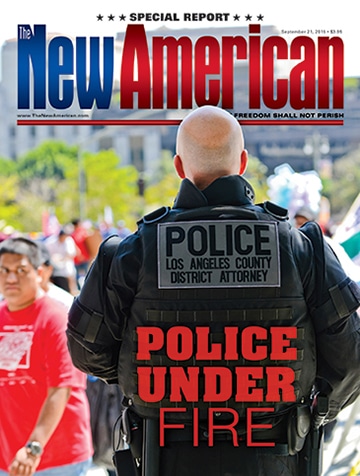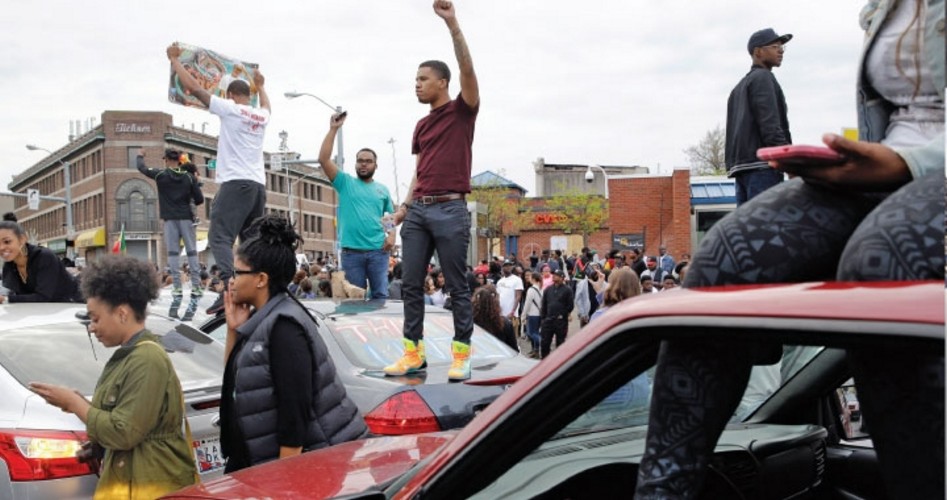Are Local Police to Blame?
Harlem (1964). Watts (1965)
East Coast, West Coast. A police shooting and an attempted arrest provide the pretexts for days of massive rioting, looting, arson, death, and destruction. Racism and police brutality, say the rioters/looters (and their supporters in political office, the media, and academia), are responsible for the violence and devastation. The Harlem riots provided the spark for additional riots that year in Chicago, Philadelphia, Rochester, and the New Jersey cities of Paterson, Elizabeth, and Jersey City. The war zone-like wreckage of Watts, a black neighborhood in Los Angeles, became the symbol “inspiring” similar rioting in more than 100 cities over the next three years: 1966 (San Francisco, Chicago, Cleveland, Omaha), 1967 (Detroit, Newark, New York City, Minneapolis, Grand Rapids, Houston, Milwaukee), and 1968 (Chicago, Baltimore, Pittsburgh, Louisville, Detroit, Washington, D.C.).
Fifty years later: Ferguson (2014), Baltimore (2015)
Again rioting, looting, arson, and devastation. Racism and police brutality, say the rioters/looters (and their supporters in political office, the media, and academia), are again to blame. “Systemic racism,” “structural racism” — the type that can only be remedied, claim the critics, by overturning the “exploitation” and “inequality” of our capitalist system and the “racist” brutality it perpetuates in our police departments. And this can only be accomplished, they say, by more government programs and more government spending, especially by the federal government in Washington, D.C. It is also essential, say the protesters and their elite supporters, that the federal government take over the functions of local police, or at least impose national (some are demanding international) standards on local law-enforcement agencies.
To those (such as this writer) who are old enough to have lived through the earlier riots (of the 1960s and beyond) this seems — in the words of Yogi Berra — “like déjà vu all over again.” Not only do we have the same revolutionary rhetoric and the same street tactics producing the same deadly results, but we are seeing, once again, the same alliance of radical thugs in the streets and radical suits in the suites. The same tax-exempt foundations (Ford, Rockefeller, Carnegie, etc.) and corporate globalists who funded the incendiary Marxist-Leninist cadres that burned down our cities in the ’60s (leaving millions of black Americans in even more desperate straits) are still shoveling billions of dollars to the radical arsonists who are pouring gasoline on the racial embers today. They are also still funding scholarly reports, studies, commissions, and task forces that, not surprisingly, call for nationalizing and “standardizing” our police powers. In a nutshell, we are witnessing both “pressure from above” and “pressure from below” to demonize and paralyze local police, and to promote the idea that federalizing our police will solve the reputed police crises.
JBS Member or ShopJBS.org Customer?
Sign in with your ShopJBS.org account username and password or use that login to subscribe.

 Subscribe Now
Subscribe Now
- 24 Issues Per Year
- Digital Edition Access
- Exclusive Subscriber Content
- Audio provided for all articles
- Unlimited access to past issues
- Cancel anytime.
- Renews automatically

 Subscribe Now
Subscribe Now
- 24 Issues Per Year
- Print edition delivery (USA)
*Available Outside USA - Digital Edition Access
- Exclusive Subscriber Content
- Audio provided for all articles
- Unlimited access to past issues
- Cancel anytime.
- Renews automatically


